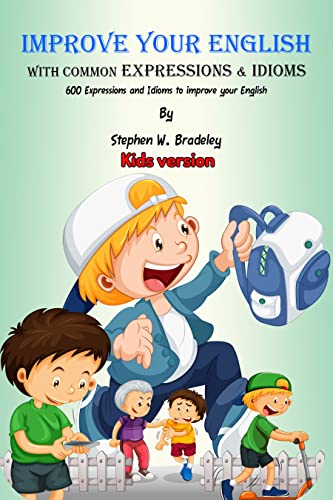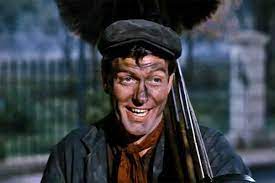Please share my lesson using your social media platforms. Use the links above.
Student FREE Bookstore (CLICK HERE)
CLICK HERE TO GO TO AMAZON.COM.BR
What is “Cockney Slang?”
So you thought you knew how to speak English!
Introduction:
Cockney slang, also known as Cockney rhyming slang, is a form of informal, coded language that originated in the East End of London during the 19th century. It consists of replacing common words or phrases with rhyming phrases or expressions, often dropping the rhyming word to make the connection less obvious. This linguistic phenomenon was initially used by workers and traders for secret communication and to establish a sense of identity and camaraderie among specific social groups within the bustling London community.
Vocabulary Review: >>>>>

Cockney slang started to gain popularity through its use in popular culture, such as in literature, music, television shows, and movies. Some common examples include using “apples and pears” to mean “stairs”, “dog and bone” for “phone”, and “trouble and strife” for “wife”. Over time, the popularity of Cockney slang expanded beyond its native region, leading to variations and adaptations in other parts of England as well as in some international English-speaking communities.
Vocabulary Review: >>>>>
Examples of Cockney Slang:
1. Apples and Pears = Stairs: This Cockney rhyming slang refers to using apples and pears to represent stairs, making conversations more playful and interesting.
2. Dog and Bone = Phone: With this rhyme, Cockneys replace the word “phone” with “dog and bone,” making it a much more colorful way of referring to the device.
3. Barnet Fair = Hair: Instead of simply saying “hair,” Cockneys use the term “Barnet Fair” as a creative way to discuss hair either in context of style or cut.
4. Trouble and Strife = Wife: This phrase is used to refer to one’s spouse, replacing the term “wife” with “trouble and strife” as a playful and lighthearted descriptor.

5. Plates of Meat = Feet: In Cockney slang, the term “plates of meat” is used as a substitute for feet, bringing an amusing twist to descriptions related to walking or footwear.
6. Boat Race = Face: By using this rhyming slang, Cockneys exchange the word “face” with “boat race,” adding humor when talking about someone’s appearance or expression.
7. Ruby Murray = Curry: Food lovers may enjoy this one – instead of asking for a curry, Cockneys ask for a “Ruby Murray,” in honor of the 1950s Irish singer with a similar name.
8. Sky Rocket = Pocket: The phrase “sky rocket” is used instead of pocket, making conversations about money stored in one’s pocket even more intriguing.
9. Loaf of Bread = Head: When discussing things related to the head or mind, Cockneys often employ the term “loaf of bread” as an inventive alternative.
10. Butcher’s Hook = Look: Lastly, this slang term replaces the verb “look” with “butcher’s hook,” putting a unique spin on requests for someone to direct their attention to something.
Vocabulary Review: >>>>>
Questions One:
1. What is the meaning of the Cockney slang phrase “apples and pears” and in what context is it used?
2. How does the phrase “dog and bone” relate to a common household item in Cockney slang?
3. What does the Cockney slang term “plates of meat” refer to, and is it used figuratively or literally?
4. Can you explain how the Cockney rhyming slang phrase “trouble and strife” represents a particular family member?
5. What are some popular Cockney slang phrases that describe various monetary denominations and values?
Monetary denominations in English and Cockney slang:
Here is a list of Cockney slang words related to monetary amounts and their meanings:
1. Pony: £25
2. Monkey: £500
3. Ton: £100
4. Score: £20
5. Tenner: £10
6. Fiver: £5
7. Quid: £1
8. Nicker: £1 (another term)
9. Lady Godiva: £5 (rhymes with fiver)
10. Half a ton: £50
Vocabulary Review: >>>>>
Video Listening Section:
Questions Two:
-
-
-
-
- How do we say the word “tea” in Cockney slang. Can you ask your teacher a question using the term?
- What is a “Jimmy Riddle” in normal English?
- What does “Adam and Eve” mean?
- Ask me a question using the cockney slang “Duke of Kent”.
- What is a “Tommy Trinder”?
- What does the verb to “Rabbit on” mean?
- What is a “pork pie2 or “porky” in normal English and what does it mean in Cockney slang?
- What is Porridge? Have you ever don porridge?
- Do you like a “Britney Spears” on the weekend?
- What does it mean when we say, “I don’t have a “Scooby Doo”?
-
-
-
Grammar Questions Three:
1. What’s the correct way to turn “I am going to the shops” into a sentence that shows continuous action in the present using cockney slang?
2. How would you say “She’s been fixing her car continuously since this morning” using cockney slang in present perfect progressive tense?
3. In cockney slang, how do we say “They had been having a chinwag” while emphasizing the ongoing nature of the conversation in past perfect progressive tense?
4. Convert “They are going to play football” into a future continuous action phrase with a touch of cockney slang.
5. If someone is “having a butcher’s” constantly every day, how do we express this action using future perfect progressive tense in cockney slang?
Video Listening Two: In this movie clip of “The Italian Job” 1969 you will hear a lot of Cockney slang being used because the main actor Sir Michael Caine is a Londoner (Cockney). List to the song in the movie and see if you can hear the cockney slang.
Writing Exercise:
Write a short story about a London market vendor using Cockney slang. Include phrases like “apples and pears” for stairs, “dog and bone” for phone, and “bubble bath” for laugh. Show the dialogue between the vendor and a customer discussing prices, having a “chinwag” (chat), and using “brass tacks” (facts).
ANSWERS:
1. I’m on my way to the rub-a-dub. (SHOPS)
2. She’s been sorting her jam jar continuously since this morning. (CAR)
3. They’d been having a rabbit for donkey’s years. (TALKING) (A LONG TIME)
4. They’re going to be having a kickabout later. (PLAY FOOTBALL)
5. They’ll’ve been taking a shufty every day for ages. (LOOKING)


